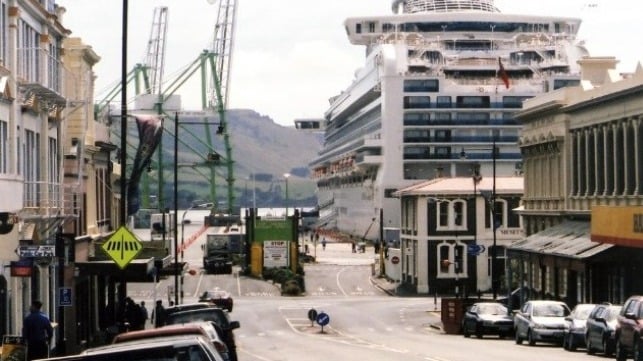New Zealand Puts Seafarer Welfare Funding Into Law

In a historic move, the New Zealand government has updated its Maritime Transport Act 1994 to provide funding for seafarer welfare services, reflecting effective lobbying undertaken by the New Zealand Seafarer’s Welfare Board with support from Human Rights at Sea. The legislative amendment comes into force today.
“Today is a truly historic day for seafarers globally with a proven legislative route to long-term welfare service sustainability and financial security being applied through the maritime levy system," said HRAS CEO David Hammond. "The hard work undertaken by the New Zealand Seafarer’s Welfare Board has set a precedent that can now be mirrored by coastal states around the world to benefit all seafarers going forward. Human Rights at Sea is pleased to have been able to support this change.”
HRAS completed a study on New Zealand's welfare services and MLC compliance in April 2020, and it gave five key recommendations. The first and most important was a call for the New Zealand government to review funding for shore-based seafarers’ welfare facilities and services, which are required by the MLC.
The Seafarer’s Welfare Board (SWB) agreed, finding that charitable donations and volunteerism alone were not enough to meet the needs of the thousands of seafarers who call in New Zealand every year. “[The current situation] is not something we can sustain into the future. We desperately need the shipping companies, port authorities and all those who profit from the maritime sector to make some financial contribution to the care of crews coming ashore in New Zealand," concurred the board's chair, the Rev John McLister, following the publication of the report.
In October 2020, the New Zealand Government announced that it intended to amend the Maritime Transport Act and use the country's maritime levy to support seafarers’ wellbeing. Prior to the bill's passage, maritime levies under section 191 of the Maritime Transport Act were used for a range of shipping-related purposes, but they were not available to underwrite seafarer welfare services. On March 9, 2021, Transport Minister Michael Wood announced that the government was fulfilling its pre-election commitment. The minister later confirmed that "the government has made changes to the MTA which will remedy the situation and allow maritime levies to fund seafarer welfare services for the purposes of the MLC," effective July 1.
Figures obtained by HRAS suggest that the legislative amendment will affect 10 ports hosting a combined average of about 130,000 seafarers per year.
"In future, New Zealand's seafarer welfare support services will be financially reinforced, with every seafarer who visits the country being able to benefit from the investment into their working lives," HRAS said.
The opinions expressed herein are the author's and not necessarily those of The Maritime Executive.

